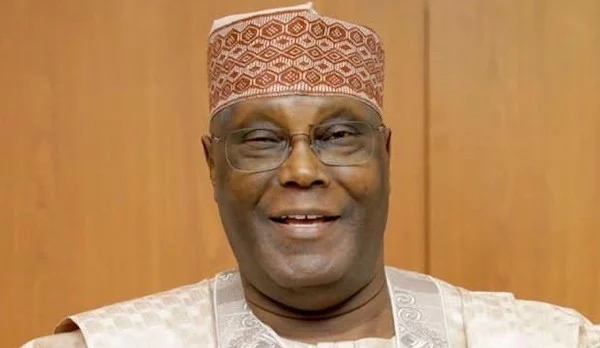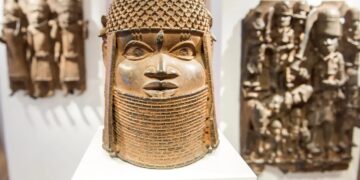In the last eight years, the Nigerian people have been pushed into the crucibles of pain and agony by the All Progressives Congress-led government. From insecurity to economic misalignment, the current APC government has proved why Nigerians must not allow the party back to power ever again.
Before 2015, many Nigerian households could afford to buy rice at N8, 000 to N10, 000 per bag at that time. Those who criticized the situation then must be enervated and shocked by the ineptitude of the APC government which has ensured that a bag of rice now sells between N35,000 and N50,000.
The Nigerian currency still had some value at that time as a dollar to naira exchange rate was N199/$ as at March 2015. Today, nobody knows the real exchange rate of the naira to dollar. While the black or parallel market – which has been made popular by the APC government- sells at N750-N800/$, the so-called official market, which does not even support businesses, sells between N440 and N460 to a dollar.
The implications of allowing businesses such as manufacturers to access dollars have been dire for the economy. Between 2016 and 2021, manufacturers’ investments slumped from N489.44 billion to N217.22 billion, according to data by the Manufacturers Association of Nigeria collated by The PUNCH. The price of a product as common as biscuit has risen from N10 in 2015 to N30 to N40 in 2023. Even at that, it is no longer as rich as it used to be in terms of quantity and quality. The reason is not far-fetched, as manufacturers themselves struggle to access dollars to import their raw materials. Even most of the backward integration programmes initiated by the PDP-led governments of Olusegun Obasanjo, Umaru Yar’Adua and Goodluck Jonathan, have evaporated.
For starters, the backward integration programmes were targeted at ensuring that manufacturers sourced their raw materials locally. It was done in sugar, cement, palm oil, flour and several other products. But ask manufacturers, they will tell you they have stopped most of those projects. As at 2014, over 21 vehicle assemblers had set up plants in various parts of Nigeria, but some of them exited four to five years later due to policy flip-flops of the APC- led administration.
Also, inflation has hit the 20 percent mark twice, receded and is nearly 22 percent today. Food inflation was 24 percent in December 2022 from 9.78 percent in May 2015. Little wonder prices of garri, rice, beans, tomatoes and other food products have gone out of the reach of the Nigerian people. Many Nigerian families are worse off, thanks to the APC-led government, with 133 million of them in multi-dimensional poverty.
The APC-led government, through the Debt Management Office, announced in December 2022 that the country’s debt will hit N77 trillion if the National Assembly restructures the ways and means. Many Nigerians may not understand this. A government borrowed money, mostly through printing new money, from the Central Bank of Nigeria, and is requesting debt restructuring when it is time to pay back. This is, perhaps, the first time in Nigeria’s history that a government would be seeking to restructure its loans from the central bank.
If this is not financial rascality, how else will anybody explain the N5.24 trillion debt service incurred by the APC-led government in 2022?
The World Bank projected, in December 2022, that interest payments on the APC-led government’s ways and means from the CBN would take 62 per cent of government revenue by 2027.
In its words, “Despite the restructuring of the Ways and Means stock in 2023, interest payments are projected to steadily increase by 2.4 percentage points of GDP between 2018 and 2027, and by 2027 interest payments will account for over 62 per cent of revenues.”
Shockingly, the APC-led government has retained the petrol subsidy, which it had described as a fraud when it was campaigning in 2014 and early 2015. Today, Nigerians are shocked that the benumbed APC-led government is planning to spend over N6 trillion on subsidizing fuel in 2023.
The private sector has got nothing else from the APC-led government than payment of multiple taxes, levies and fees. Many companies today pay 35 percent tax on their revenues or more due to the APC-led government’s penchant for increasing taxes or introducing new ones. Yet many of the private sector players conduct their businesses in environments where there is little or no power supply, no good roads and terrible port systems. Manufacturers and other businesses access loans at interest rates above 23 percent.
If the economy of Nigeria has collapsed, the security architecture has become comatose. Terrorists have sacked many Nigerians from their villages and destroyed farms – which is majorly why the prices of food are very high. According to the United Nations Development Programme, North-East insurgency has led to the death of 350,000 Nigerians – 10 times more than earlier estimated in 2019. Many Nigerians, including schoolchildren, in other parts of the country have also been kidnapped and some are still in kidnappers’ custody without any proactive measures by the APC-led government to rescue them.
All these challenges explain why Nigerians now clamour for Atiku Abubakar, the Wazirin Adamawa, the candidate of the People’s Democratic Party who by far is the most experienced , the most prepared and the most sincere of the candidates jostling to replace the APC’s President Buhari in the coming election.
A well-rounded presidential candidate, Atiku understands how to run an economy, being a private sector person himself. He was in charge of the Nigerian economy as vice president and superintended one of the best periods of economic prosperity in the country between 1999 and 2007. He is passionate about the economy and believes in allowing the private sector to manage critical assets while the government complements it with policies and convivial business environment.
In 2014, Abubakar said on his Twitter handle that he believed he was the largest private employer of labour in Nigeria at that time. He had noted in his hash tag, #LetsTalkJobs, “As an individual, I believe my record in employing young Nigerians is unrivalled by any single private investor in Nigeria”.
Abubakar added, “Since the mid-80s, my private investments have generated thousands of jobs for Nigeria – currently standing +50,000 jobs #LetsTalkJobs.”
A man who had created 50,000 jobs in 2014 can create more jobs if he becomes president. He will also be able to galvanize foreign and local investments needed to revivify the country’s infrastructure development, being a private sector person with several investments himself. The former vice president is a man who wastes no time in tackling problems.
This is why Nigerians are waiting to crown him president on February 25.
Nigerians know he has paramilitary experience needed to fight insecurity with a carrot and stick approach. He will dialogue with various agitating groups to achieve peace and prosperity. Those who are bent on killing innocent Nigerians will be crushed.
As Nigerians go to the historic polls, it is becoming increasingly clear that many voters from North to South are waiting to crown Wazirin Adamawa president of the most populous black nation
We’ve got the edge. Get real-time reports, breaking scoops, and exclusive angles delivered straight to your phone. Don’t settle for stale news. Join LEADERSHIP NEWS on WhatsApp for 24/7 updates →
Join Our WhatsApp Channel










